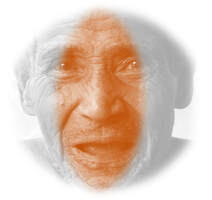|
It was February. I stood barefoot on the beach, watching the waves rise and fall mightily, roll over my feet gently and then immediately return to meet the vast ocean. The evening sun spread its colours across the sky. Tiny boats dotted the horizon, returning to the shore. The smell of the sea filled my nostrils. I wondered how this came to be my life. How did I end up giving birth, then losing my 4-year-old daughter to cancer (brain tumour) after 18 months of struggle (of which 14 months were in palliative care)? How did my family and I survive the trauma? How did I come to stand on this beach without Ira? Clinging to elusive hopeI had noticed minor tremors in Ira’s left hand in March 2017. Initially it was attributed to motor development issues. After a few visits to the paediatrician and the neurologist, and a scan later, the diagnosis was confirmed—thalamic glioma. A surgery was imperative as the tumour pressed on several parts of the brain. All through, from diagnosis to surgery to post-surgery, hope remained a constant but its face kept changing. From hoping that the tremors would be non-worrisome, to thinking that the surgery would have no complications and to assuming that we’d be back home in 15 days. Ira’s treatment in the hospital lasted for 2.5 months. A major brain surgery and several post-operative complications later, Ira was in a state of poor consciousness. She had lost her speech and her ability to register and respond to stimuli around. In medical terminology, she was in a vegetative state. With each passing day, hopes of her recovery diminished. Our hopes for cure and recovery changed to hopes for comfort and relief for Ira. Help to hope rightAs a mother who went through it, I think there is confusion about hope during palliative care. It is not about giving and keeping false hopes about recovery or cure. Although, in our case, the acceptance of Ira’s condition took time to settle in, we learnt to keep any false hopes about her recovery at bay. We need to understand and accept the prognosis and course of treatment. There is no need to dismiss or discard hope. It just needs to be realistic. Focus on short-term goals and expect practical outcomes. Right through her palliative care, with all our love and compassion, we worked to provide as much comfort at home and as much relief from her neurological problems as possible. If a terminal patient or family member makes long-term plans or envisions a future with all, it is important for the medical and allied professionals to gently help them understand the prognosis. And tell them what hopes that they can realistically harbour. Hope beyond cureHope in palliative care, as complex as it may appear, is about several aspects except a cure. It should be about a good quality of life in the time left, reconciliation and closure with family members and friends, avoiding discomfort during the care, and being cared for with utmost love and selflessness. Though the tragedy of loss and the grief of death always stared us in the face, our family was content that distressing symptoms were reduced and managed at the earliest. As her mother and caregiver, I felt that Ira’s troubles, malaise and anguish were far greater than mine, and this gave me the strength to keep going and to care for her with even more compassion and love. Yes, hope is intangible. It will not just bounce into your life and light it up like fireflies at night. Find it within. Hang on to its threads as if your life depends on it, because it really does. Pratima Mehta writes a blog about Ira’s journey, how the family coped and practical aspects of care. ALREADY PUBLISHED IN THIS SERIES
1 Comment
Sonali Kulkarni
31/10/2019 04:53:06 am
Offcourse a sad story but I think very well explained a thought of HOPE,....A right hope...
Reply
Leave a Reply. |
AuthorVijayakumar Kotteri Categories
All
Archives
July 2024
|









 RSS Feed
RSS Feed

